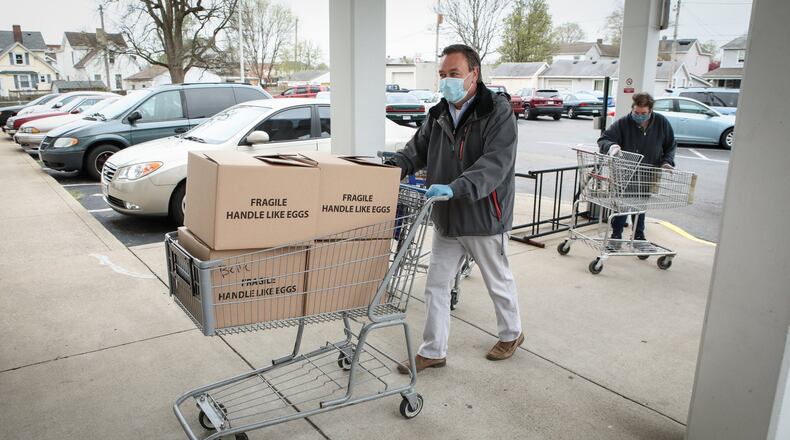The county went out for requests for proposal for the service — that provides services so the elderly can stay in their homes as long as possible — but the CoA was the only provider that responded. Commissioner Don Dixon told the Journal-News he is very pleased with how the agency manages the county’s 1.3-mill Elderly Services Program levy that collects $10 million annually.
“They’ve historically been so much less than everybody else for administrative costs and they do a great job so I can understand why nobody would be real interested in bidding on it,” Dixon said. “It’s not a real money making deal, it’s more of a cause. I personally am very, very satisfied, they’ve saved us a lot of money and delivered a lot more services with the dollars we’ve got.”
Voters overwhelming passed a renewal levy by 77% to 23% in 2020, the levy costs $39.81 annually per $100,000 in property valuation.
Wilson told the Journal-News the agency served 4,307 clients last year compared to 3,808 in 2016, the year prior to the contract renewal in 2017. The program pays for a wide array of services including transportation, meals, mental health, adult day services, home health care, housekeeping and repairs. Wilson said the monthly cost for the Elderly Services Program is $290 compared to $6,000 for a nursing home.
Wilson said they are considering three new programs — they are not provided for in the contract yet — to “improve the program and modernize the service delivery system to provide better services” they are:
- A home health aid app which is new technology that allows the client or family member to schedule their own appointments and get matched with the right aid they need without going through a traditional home care agency.
- Fast Track Home program is a new offering designed for short-term recovery after a hospital or nursing home stay and services are set up before the person is released.
- Chronic Care Management would tap into the new Medicare program that pays for case management for chronic conditions and saves levy funds.
He said they are also working with Scripps Gerontology Center at Miami University to make changes to the program and one of the recommendations was to offer services to everyone age 60 and older, which is part of the new contract with the commissioners. Previously certain services, like home health care, were not available to people below the age of 65. They are also “tweaking some of the (ability) deficits that are required to receive services.”
The new contract states that to be eligible for services the resident must be 60 years or older and “impaired in the performance of at least two activities of daily living and/or instrumental activities of daily living.”
“Our mission and our charge is we’re always looking for innovative ways to make the program better in order to serve more older adults at a lower cost,” Wilson said. “So we can reach as many Butler County residents as possible with services in the program.”
The Scripps Gerontology Center’s Ohio Population Interactive Data Center is projecting that 23.1 percent of Butler County will be 60 or older in 2030. The data estimate the 60-plus population grew by 30,937 residents to 82,020 between 2015 and 2020, additional 8,610 will enter that demographic by 2025 and by 2030 the elderly population will likely stand at around 94,930.
Because the 7% fee means the county doesn’t have an exact idea of the total expense every year, the commissioners capped the old contract at $3.8 million. County Administrator Judi Boyko told the Journal-News with the rapidly aging population she didn’t want to be too restrictive by imposing a rigid contract cap.
She said essentially the CoA is capped to a degree because they must submit an annual budget to the commissioners that identifies how much money they intend to spend on which program areas “so the commissioners have tremendous control over approving that budget and how much they can spend.”
“Our elderly demographic is expanding each year that passes, we are having more and more elderly citizens,” Boyko said. “So we are wanting to use this contract to evaluate how the elderly are currently served and identify the best and most cost effective way to do that.”
About the Author

